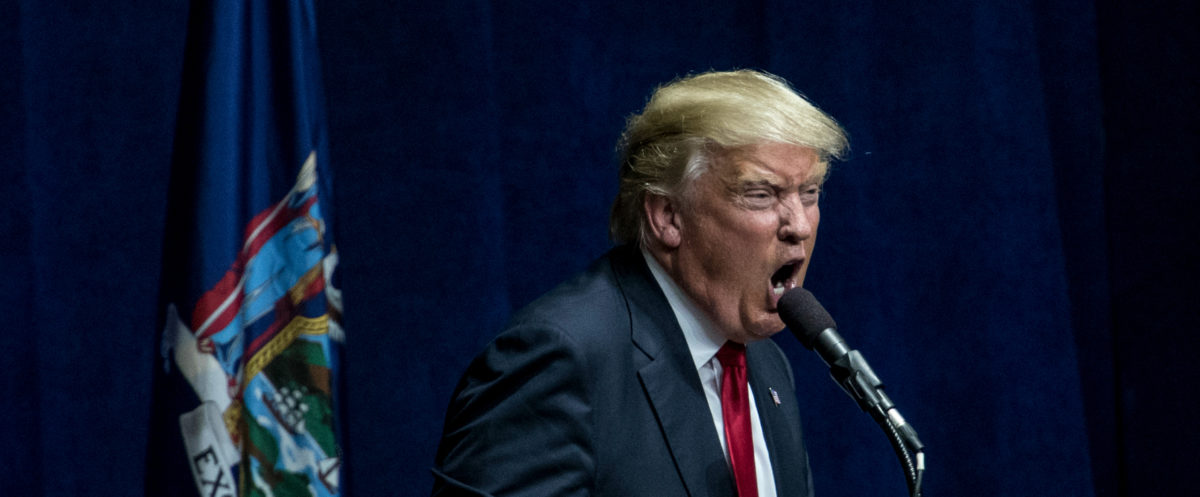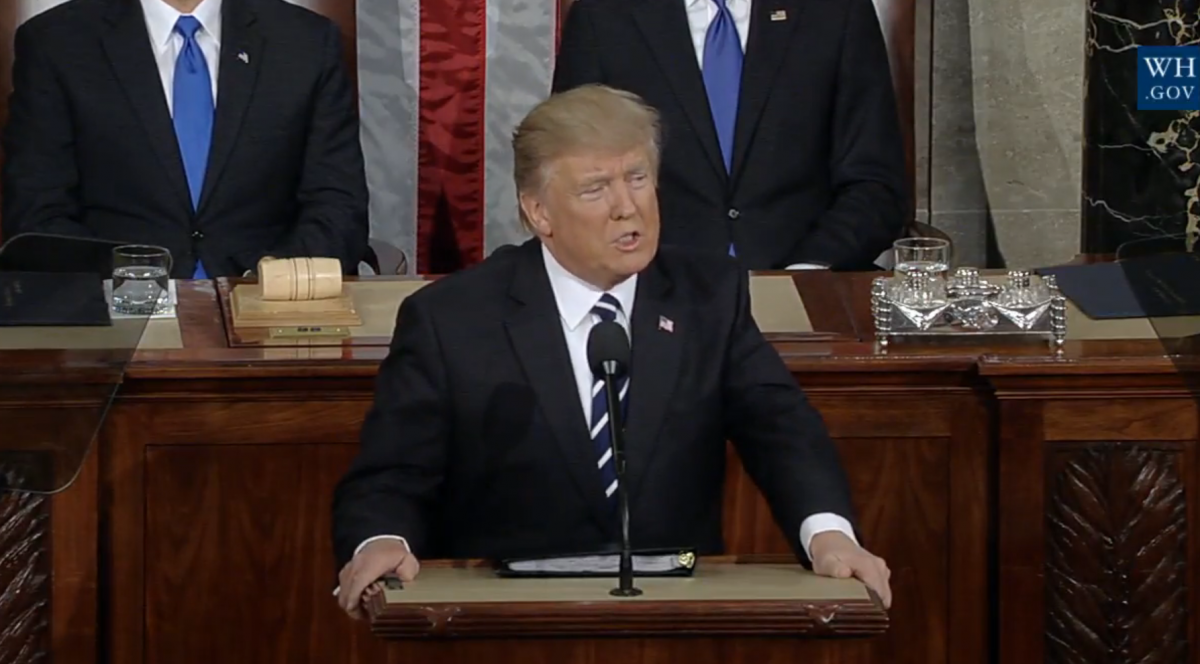It is nearly impossible to traipse through life without encountering the petty tyrant, that highly annoying passive-aggressive type who carries on through life at such a childish level of emotional maturity that you often have to do everything you can to deny him the power and the attention he so desperately craves. There may be a part of you that very much wants to throttle the petty tyrant, but this is a negative feeling you rightly come to resent because spite and violent fantasies are usually not effective ways to get along with other people. It is a tribute to the petty tyrant’s toxic hold on our culture and his remarkable inflexibility to change that we come to detest tyrants as much as we do. But it really shouldn’t be this way.
We know very well who they are. Petty tyrants often elbow their way into positions of extremely minor authority — such as organizing a group picnic or collecting donations for a beloved peer’s cancer treatment or otherwise setting the tone for how a particular purlieu is perceived — but they can sometimes be so successful and unchecked in their pettiness that they rise to unfathomable power (see Donald Trump, who is now using petty tyranny to bring us closer to the brink of nuclear war). Rather than using their positions to gracefully include everyone, petty tyrants proceed to snub and undermine and exclude within an environment that is often so small that the hurt is somehow both sizeably felt and inconsequential.
Because one often has to endure a petty tyrant’s needlessly exiguous sullies over the course of a sustained period, the petty tyrant’s sting burrows into one’s soul far deeper than it needs to. The petty tyrant’s concatenation of minor slights is not unlike Chinese water torture, matched only by the relentless pings of push notifications purring from one’s phone and the incessant calls to be constantly connected. Small wonder then that the Internet has increasingly become the petty tyrant’s medium of choice. After enduring a petty tyrant’s latest jab, one often has to look in the mirror, take a few deep breaths, remember Eleanor Roosevelt’s cogent maxim, “Nobody can make you feel inferior without your consent,” summon whatever mindfulness there is in the tank, and attempt to assert one’s naturally benign existence as much as possible. Unfortunately, because people tend to believe the word of other people who hold positions of power and we now live in a world in which an altogether different froth rises to the top, the petty tyrant’s influence and sensibilities can swiftly infiltrate a group dynamic, often stubbing out views and opinions that very much need to be considered. (As Margaret Jacobsen observed in Bitch shortly after Trump’s election, “Too often in our society, white women have value while women of color do not.” Let us not forget that white guilt is very much a petty tyranny of its own.)
Petty tyrants are often anti-intellectual. They are almost always convinced that they are infallible and can never be persuaded to change their minds, which is often saturated with a repugnant sense of vague knowingness often misconstrued as expertise. They really believe that their opinion is the only one that matters and are often insufferably absurd figures like the people who host NPR’s Pop Culture Happy Hour, petty tyrants in the midcult mode who truly believe that culture should be made exclusively and only for them. (“I am, by any reasonable measure, a cynical jerk and my taste in pop culture tends to follow that,” revealed Glen Weldon in a recent episode. “But this year, something has changed within me. Something is not the same.” Anyone who has endured Weldon’s narcissistic flippancy for years knows that this is not true. This is a prime example of the petty tyrant who feigns honesty while ultimately practicing an absolutist sensibility that transmutes quite easily into tyranny, a quality not altogether different from a President who will tweet any outlandish and threatening bullshit under the rubric of “blunt honesty” to get people riled up.)
They are usually intolerant of other people for incredibly insignificant reasons and are remarkably petty about it (see, for example, Teresa Nielsen Hayden’s disemvoweling practice from 2008, which has rightly been styled as geek vengeance by Will Shetterly). They can be found on any part of the political spectrum, ranging from the intolerant MAGA booster who will never listen to facts, much less what a progressive has actually said, or the vituperative social justice warrior who would prefer to destroy the life and livelihood of an opponent rather than consider that there may be a peaceful possibility for someone to understand and change. They often have an inflated sense of their own importance, often bolstered through social media, a digital flesh-eating virus that cowardly and unprincipled Quislings like Jack Dorsey and Biz Stone lack the know-how or the gumption to cure. Twitter alone has been responsible for such a colossal wave of petty tyrants that, if one is fortunate enough to not be assailed for one’s vaguely controversial views by a crazed army of trolls, one often has to uninstall Twitter from one’s phone in order to be reminded that face-to-face conversation is not usually like this.
What makes petty tyrants so detestable is the way in which they discourage kindness, peace, understanding, compassion, and forgiveness — in short, the possibility for many different types of people to come together. As Rebecca Solnit smartly observed months before Harvey Weinstein’s exposure ushered in the beginnings of a much needed reckoning, petty tyrants live “in a world without honest mirrors, without others, without gravity…buffered from the consequences of their failures.” Thus, the petty tyrant increasingly operates in a filter bubble of his own making, often clueless about the cruelty and abuse he casually metes out. (Witness Robert Scoble’s remarkably obtuse blog post from last October after he was hit with allegations of sexual harassment. He not only refused to acknowledge his potential complicity, but willfully outed the private details of his victims)
There’s really no easy way that you can win against a petty tyrant. You can be obsequious and you will still be subjected to belittlement. You can politely inform the petty tyrant precisely how you feel about her conduct, but your feelings may never be respected or honored. If you’re a passionate (albeit cautious) idealist with a distinct voice who wants to believe in people like me, the petty tyrant can be the biggest pain in the ass imaginable, an affront against amity and communal possibility causing you to give into the worst aspects of your ego as you take understandable offense and sometimes stop believing in people for a while. Because the tyrant’s offense isn’t just leveled at you, but often a whole category of people who live a particular way or practice relatively benign behavior that the petty tyrant takes inexplicable umbrage against, often because the tyrant subconsciously perceives some of these qualities within herself and doesn’t want to be honest about confronting the pain of recognizing something familiar. And that’s one of the tragedies of petty tyrants. If they weren’t so caught up in tyrannizing other people, they could actually find common ground and evolve and invite more people into their lives. That’s why it’s so important to be as understanding as you can, lest you become a petty tyrant yourself (and I regret to report that I have been a petty tyrant in the past and I am still trying to sort out the differences between emotional sensitivity and unknowing tyranny, both twisted together in a taut double helix that one cannot easily unravel; the hope is that more people can call me on my shit).
But the petty tyrant isn’t all bad. The petty tyrant’s gift is to present you with a perspective about how you are detested, thus giving you a view of flaws you can work on and qualities you may be able to repair so that you may be able to communicate better. Petty tyrants challenge you to love and carry on with your lives, even as it seems the world is burning or it feels as if nobody really cares about the heart or the work that you put out into the universe. If your love tendered towards a petty tyrant can never be reciprocated, there may not be a very compelling reason to invite the petty tyrant into your life. Relationships of any sort must be predicated upon mutual respect, humility, and the ability to listen. There must be true wonder for another that supersedes all egocentric concerns. On the other hand, if you can be in the same room with the petty tyrant and not take offense, perhaps there’s a chance to nullify the tyranny in question.
Still, this is not always possible and it often takes time. You may have to wait many years for the petty tyrant to drop in stature, to be humbled enough through failure and setbacks so that the tyranny becomes thoroughly vanquished from her system. That may very well be the moment when you can offer love and forgiveness. But it’s frustrating. Because what empathetic person doesn’t feel the need for the petty tyrant to change now and become a more wondrous and beautiful person? The greatest problem with tyranny is that it is such a seductive quality, something that can settle and stick inside one’s personality to the point where it becomes almost impossible to disinter it.
Groupthink and the allure of collective humiliation are two qualities that have allowed fascism (and thus petty tyrants) to flourish throughout human history. During the rise of Mussolini, Blackshirts would force enemies to imbibe castor oil, sending them home dripping in their own shit, when not forcing them to defecate upon anything (such as speeches and manifestos) that memorialized their beliefs. The victims were stripped naked, pummeled, and handcuffed to public posts so that all would know how to think. We are not there yet, but we are getting distressingly closer. The recent clamor against vlogger Logan Paul’s insensitivity towards a suicide suggests that we have not yet grown heartless and that the righteous horror that accompanied Lynndie England’s callous photographs from Abu Ghraib has not yet been deracinated from our national conscience.
As such, it is vital for us to remember that petty tyrants in all forms have almost always begetted more sinister tyrants (including Nazis), shimmering quite dangerously into public life. Our unity, which is pivotal if we hope to restore sanity and stability to this country, has become increasingly fractured, its prospects countered by the latest cartoonish developments. Our possibilities as a nation of amazing individuals is being squandered by our insistence that petty tyrants, wherever they may be found, are not that big of a deal. The time has come for us to start becoming more pro-active about stopping petty tyrants, to rightly recognize their behavior as something that is destroying this country. Or maybe we can do better. Why can’t we start making collective attempts to recognize tyrants within our own folds and help those who tyrannize become more aware of how they harm lives, turning their actions into benevolent gestures in which their identities are still respected but the results are more peacefully inclusive? That’s going to require a great deal of patience and strength and commitment from everyone. But what’s the alternative? Letting our nation be subjected to tyranny? Believing the worst in people? Democratic principles have kept America alive, for better or worse, for more than two centuries. It is both a betrayal of our history and our enduring national character to surrender what remains of our unity. Let us believe in and understand and, above all, listen to each other, especially the voices that make us wary. Hope should not merely be a buzz word manufactured by politicians who wish to win elections. It must become a more practiced and truer quality that is more natural to our lives than the easy immolation that comes with accepting and practicing petty tyranny.





